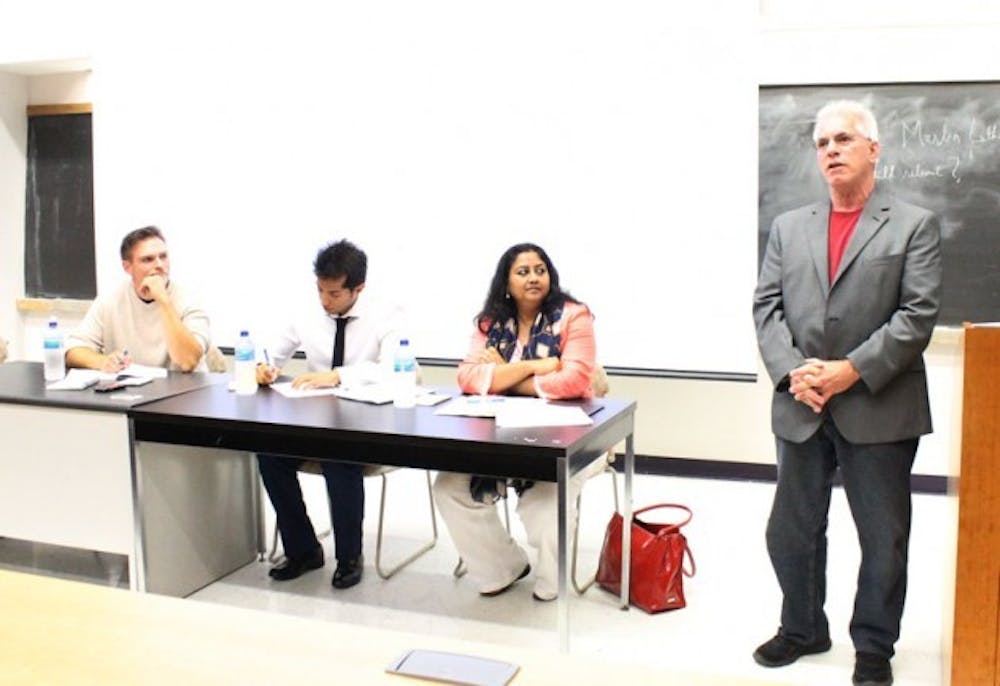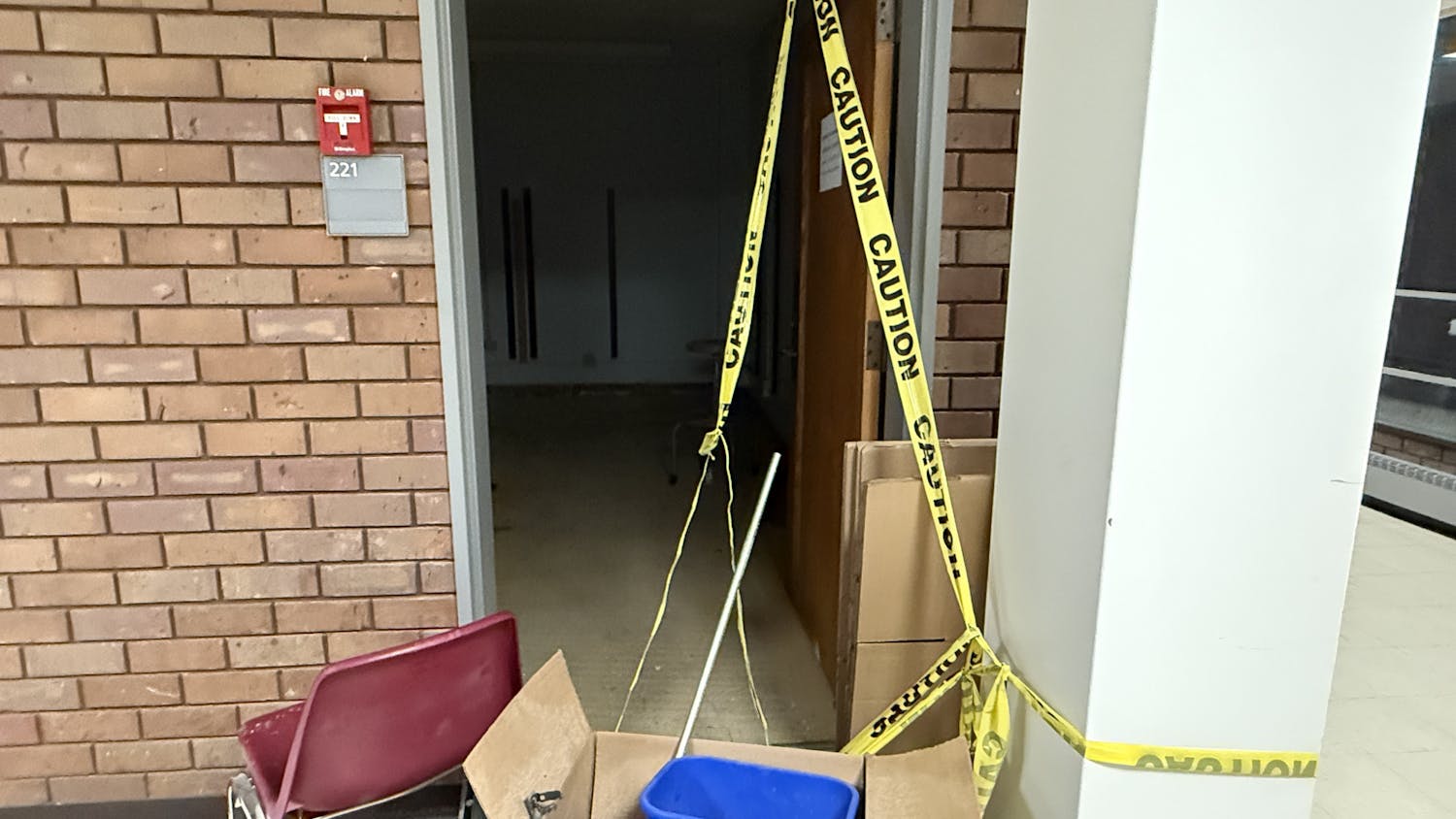When Sriram Ravindran left India to continue his graduate studies in the United States, he said he was already aware of cases in which people were arrested because they wrote or liked Facebook posts that criticized the government or politicians in India.
He wished he could do something to raise awareness to issues like freedom of speech in his home country.
He found a solution after meeting with his housemate, Santosh Rohit, a fellow UB student and project coordinator of the Association of India’s Development (AID) Buffalo Chapter. The group is an international organization that raises funds for development projects in rural areas of India and educates and raises awareness for international and local communities on human rights, education and development issues in different regions of India.
On Thursday, Ravindran, a second-year graduate student of electrical engineering, and Rohit, a fourth-year Ph.D. mechanical engineering student, were at the panel discussion “Martin Luther King and Gandhi: Are They Still Relevant?” The panel focused on the relevance of today’s non-violent movements as well as Mahatma Gandhi and Martin Luther King Jr.’s values and approaches on non-violent movements. It also discussed the definition and different interpretations of “peace.”
The day of the event corresponded with the International Day of Non-Violence, a day the United Nations declared to coincide with Gandhi’s birthday.
The four panelists of the event were Barry Gan, a professor of philosophy at St. Bonaventure University, Juhi Roy, a member of the Graduate Student Employee Union in UB, Michael Zak, a board member of WNY Peace Center and Durgham Alyasiri, a senior biology and health and human services major and president of the Organization of Arab Students.
“Gandhi and King both had a view of non-violence approach that regarded the enemy as injustices or wrongs, not as people,” Gan said.
He said non-violence approaches have a broad spectrum where the approach may or may not work in different situations.
Gan also touched on the influence of technology in today’s movements. It took Gandhi and King years to spread their message. He said the tradition of “organizing a movement” seemed to change from lobbying first and protesting later to protesting first and lobbying later.
He said with the help of current technology, people have “merged non-violence with civil disobedience” as a tactic of non-violent approaches to problems. But he also said there are varying ways of determining success of movements.
“Success should not be measured in terms of overthrowing dictators,” he said. “Instead, it should be measured by long-term stability and fair treatment of all in a society.”
In his presentation, Zak talked about Satyagraha, which is pressure for social and political reform through friendly passive resistance. Satyagraha is a concept conceived and developed by Gandhi and that later inspired King and Nelson Mandela.
Zak discussed the balance of fighting oppression non-violently. He said movements can still be successful with a combination of non-violence, non-cooperation and civil disobedience.
Alyasiri talked about the differences between “peace” at the local level versus at the global level. He explained as the world becomes more global with the help of technology, people might empathize with victims of violence around the world by liking a Facebook page, picture or status, but aren’t really able to put themselves into victims’ place.
The reason is their understanding of the issues is only limited to what they can see from a screen in their rooms, not from talking and listening to people face-to-face, he said.
He said, therefore, occurrences of violence differ from region to region. It gets harder to maintain peace on a global level because it gets harder for us to sympathize with victims of violence, he said.
The last panelist, Roy, emphasized the importance of a sense of community as well as the importance of “feeling included.”
“If people feel they belong to a community, they will be an advocate for the values of their communities in times of conflict and violence,” she said.
Abhishek Yadav, a second-year graduate student of computer science, attended the panel. He is working with his friends to create a non-profit organization based in Bhiwani, a city in India. Its goal is to provide assistance to orphans in the district.
Yadav, who lost his parents when he was 19, said he feels it is his responsibility to find solutions to the suffering of orphans living in his hometown. As he works to develop a curriculum for the newly founded organization, he keeps in mind Ghandi’s values on community building, a concept called Swaraj that roughly means self-rule or governance. The concept will serve as a guideline for his organization.
After the panel, Ravindran said it is sad to see how philosophical concepts like Swaraj and Satyagraha were born in India but are now slowly dying.
He is, however, optimistic as this deformation also inspires his friends and himself to be active and to take more responsibility in their communities to raise questions for issues and spread education and training for possible non-violent solutions.
email: news@ubspectrum.com





